At noon, I watched the things next to me fade away and prosper on the other side——Zhang Qiongfei
Zhang Qiongfei’s Intro: Female, born in Yunnan in the 1970s, graduated from Yunnan Art College and Central Academy of Fine Arts. She taught at Yunnan Nationalities University and now lives in France as a freelance artist, engaging in contemporary art creation, mainly on shelf painting. Over the years, she has held many exhibitions in China, France, Sweden, Norway, etc. Her work focuses on the spiritual world of the contemporary people, and the object image symbolizes the situation we are in. Her technique is free and smooth, and there is a tendency of expressionism.
Berry: Why do you like to express dark things?
Qiongfei: Darkness is infinite. You see, the universe is dark, but I am addicted to darkness. If I describe a dark and infinite space, I will feel inexplicably comfortable. Years later, art freed these memories of my childhood. I can relate to the artists who express this experience, such as Munch.
Berry: What do you think of the problem, which seems to be an “exhausted topic” – women rights, or “feminism”? Do you think it is important? Does your identity as a woman influence you in artistic creation? (To be honest, some female artists have always relied on “gender” to inspire and create and to attract eyeballs. I can sense the so-called “trying too hard” from time to time from these artists)
Qiong Fei: I am sometimes a feminist, while other times not. When I am angry, I become a feminist ‘cuz now, gender inequality is still everywhere, we need to speak out and express our thoughts. However, when feminism slips into a modest expression, I am very vigilant. I don’t want my thinking to fall into cliché. To be honest, many works of female artists are similar today. I have no special feelings. I am also reluctant to maintain intentional opposition to the male world. After all, the relationship between the genders is far more complicated and richer than what’s usually discussed.
The “trying too hard” you mentioned is a phenomenon that often exists. It only shows that the artist is too eager to express herself, thus losing her true self. In fact, “suitable” is best when it comes to good things. In addition, I think the difference between artists is very huge, almost comparable to the difference between species. Some artists, you know his or her gender when you look at the work, while for other works, one can’t tell. This shows that each artist’s sensitive points differ, yet it cannot be used to judge whether the work is good or bad. For example, look at Frida Kahlo’s work, you immediately know that this is a female artist’s painting. Same for writers, such as Margaret Duras in France is a typical example. I think I am androgynous, sometimes I am extremely rational, and I am so when painting as well.
Berry: What does being a “French artist” mean to you? Is there any major change? Does it have an impact on your creation? Do you like it? Did you have a “disillusionment” at first? (I had it) It took me almost three years to find myself after I came to the United States.
Qiongfei: I never thought about going abroad in my early years. Life has always been accidental. Before I went abroad, I had a less biased understanding of the West through books and film and television images, so I was neither surprised nor disappointed after going abroad, because I never thought that the West was a paradise. The impact on my creation is small. I almost never directly painted a Westerner or a beautiful pastoral landscape around me. I only care about the inner image.
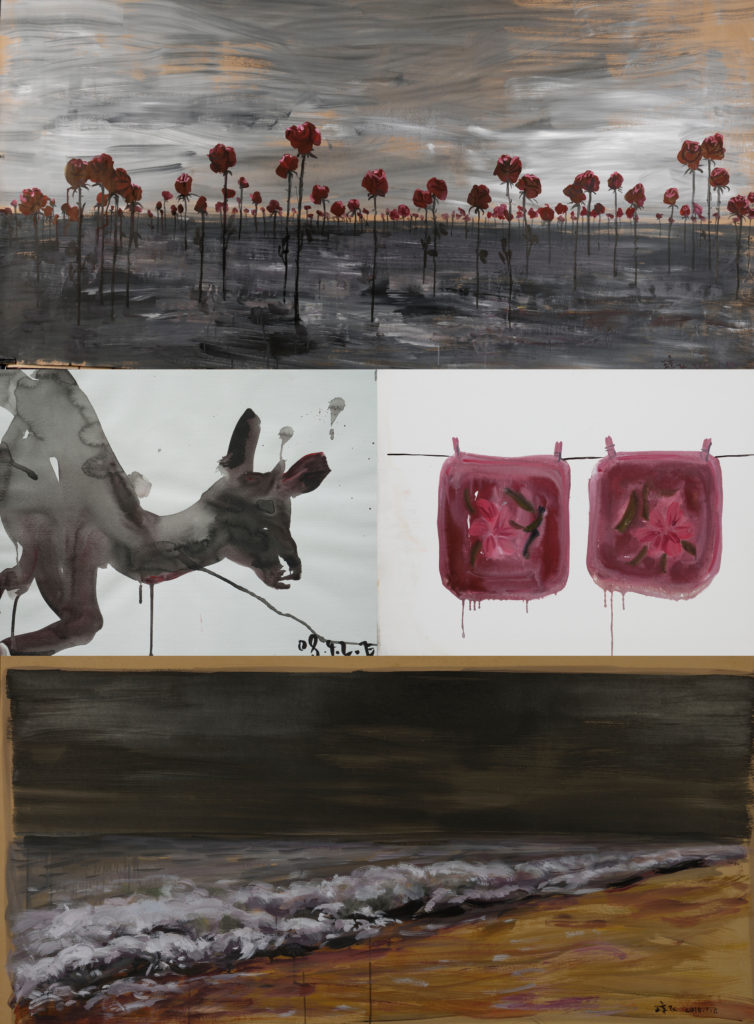
Berry: This mentality is good, easy going and relaxing.
Qiongfei: I like a lot of places in France. I like their rich understanding and expression of love, both in art and in daily life.
Berry: After moving overseas, how do you feel about the relationship between Chinese contemporary art and the world, has the society and the public changed over the years? For example: What is the difference between Chinese and Western artists when reflecting social issues in the way of contemporary art? Because I found that you are a person who pays more attention to social reality and always has your own thoughts and judgments.
Qiongfei: This question is relatively big, I am afraid that I can’t answer it well, I can only talk about my little feelings. How Westerners and the Orientals feel internally differs in many ways. Their most important question in life is how they’d face the loneliness of life. I have seen how many people die because of loneliness. Asians are different; In relationships, Chinese rarely proactively ponder philosophical loneliness.
I always think that the artist is just an individualist. Art history is a record of outstanding individualists. Imagine if many individualists come together, how wonderful and exciting the world will become.
I can hardly say that there is any difference between Eastern and Western contemporary art. I can only say that the current population is highly mobile, cultural exchanges are easy, and there are many channels for obtaining artistic resources. The cultural background of many artists is unknown without further study. There will be many artists with the broad identity of “earth-man” in the future.
Berry: Do you think a comfortable and quiet life in Europe deprives artists of the excitement they need to create? After many years of living aboard, I saw that your work is more “devious”. What are the reasons behind these somewhat bloody pictures? Is it because of feelings that are hard to get past regarding certain places or things? Do you have the feeling of being “half way through life”?
Qiongfei: Sometimes we need a little stimulation, but if art only has the effect of stimulating, it becomes a bit superficial and short-sighted of catching eyeballs only. For example, in music, after listening to classical music for a long time, I’d want to create excitement with rock and roll.
The images I paint, yes, some people say that I am “blood-sucking”, haha, yes, it used to be a little, but no longer so. I think my hormones are disappearing. Reasoning now dominates. I am sometimes a bit uncoordinated. I hope I have a knife, an imaginary sharp dagger. I sometimes think so.
It is unimportant for me to admit that I have reached the “middle age.” I used to think that people will hate aging, though one has accumulated lots of experience, the ability to move is weakening, I’ve never wanted that. I used to think that living ‘til age fifty is enough, but now I think it can be a little longer. Like Yoko Ono, it is not the best.
Berry: I also like Yoko Ono. She was very ill last year, but this year, she began creating again. Yes, never give up, whether we are in our 80s or the hormones are gone completely.
Do you think you are a person born for art? What would you do if you didn’t do art?
Qiong Fei: If I really want to say why I chose to do art, it is because everyday life is too boring, how to spend all this dreadful time? Time passes mechanically, not too fast nor too slow, yet I am an impatient person. I rarely take pictures. I don’t feel sorry for the lost youth, neither am I afraid of aging. I don’t deliberately try to overcome any mentality. I just want to feel the excitement in what I am doing which lets me forget everything else.
I try to keep myself from getting involved with any “ism”. Regardless of the school of thought, Mu Xin said: “When it comes to anything ism, just like a melon that is picked before it ripens, it won’t be sweet and it rots faster as well.” A few days ago I went to see the FIAC Art Fair in Paris, a lot of inexplicable objects piled up in the gallery, they seem to say in unison that these “ready-made products are also art.” I feel like I was in a rotten melon field, I left after a brief look.
The relationship between the artist and society is indirect. Many people like to mention “ism” when working on their creation, but the truth is, mentioning ism is just seeking convenience, while not mentioning is actually harder.
Berry: Which artists in Yunnan have a greater influence on you? What does Yunnan mean to you? Your complex emotions to your homeland? (or maybe it’s not complicated).
Qiong Fei: Da Mao (famous artist Mao Xuhui), he is like a flag. Yunnan is my homeland. Wherever I go, the fragrance of the plateau is in my blood. I have always been very regional, and I came to know that a person who grew up in the mountainous area is very different from a person who lives by the sea.
Berry: I feel the same way.
Qiongfei: Yunnan is a good place, but the goodness is indescribable. It is suitable for artists to prosper in creative ways. I am a person who is too “cultural,” every time I visit Yunnan I feel better.
Berry: Yes, prosper in creative ways, sprinkle a bag of corn seeds, what grows next year turns out to be poppy flowers, haha.
What do you think of the current booming “Chinese contemporary art”? Do you have a favorite artist and awesome artwork? Is this circle still very impulsive?
Qiongfei: Many Chinese artists are very talented, they just need a more relaxed environment. I feel that in China, artists face more problems, they are sharper, more challenging, and more interesting. There are a lot of artists; I don’t want to talk about them now, mainly because I am embarrassed. Of course, the art circle is impulsive, but it won’t be as fun if not so. I sometimes enjoy listening to the artists’ thinking out of the box. Of course, when I calm down, I will still go for what I love doing.
Berry: Are you worried about the future (including the future world)? Do you think the future of art (including artists) will be replaced by high tech? Because I am from the Silicon Valley area, I often asked this question during the interview, which is also my own suspicion.
Qiongfei: Compared to the past, I am more curious about the future. I love watching Hollywood blockbusters. I have a lot of fantasies about the future. In these films, people’s feelings are portrayed when placed in different conditions and under various assumptions. I am very curious about this. I often paint some combination of mechanics and the human body. I think the machine interferes strongly with people’s feelings. Maybe in the future, art is the only thing that will not be replaced by machinery. If even art is replaced, how boring life becomes? Though the world might become so advanced and transparent, I wouldn’t want to stay there.
For more info or to purchase works by this artist, please contact us at info@ensemble.cc

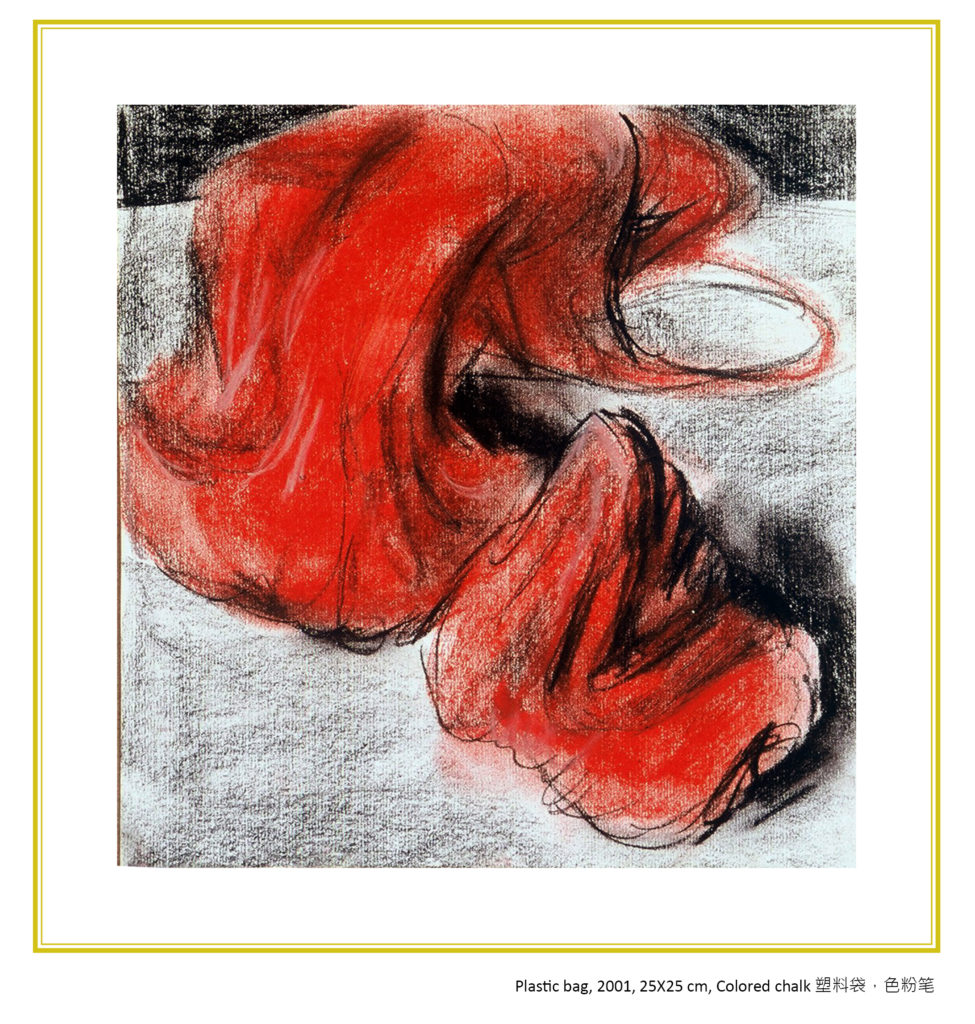
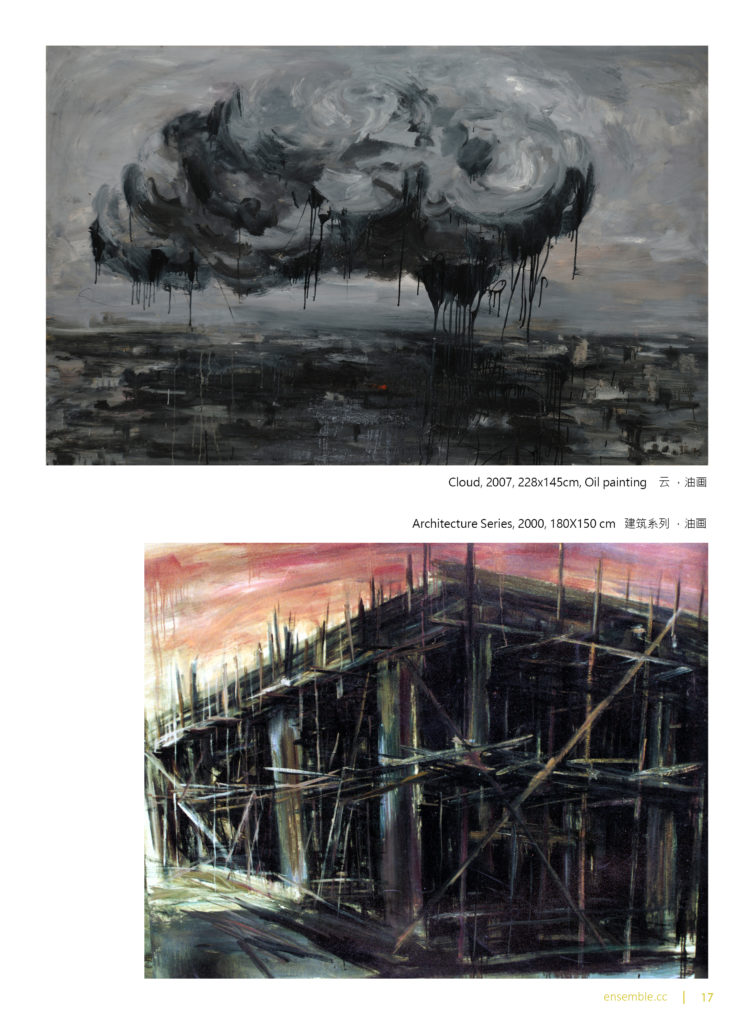
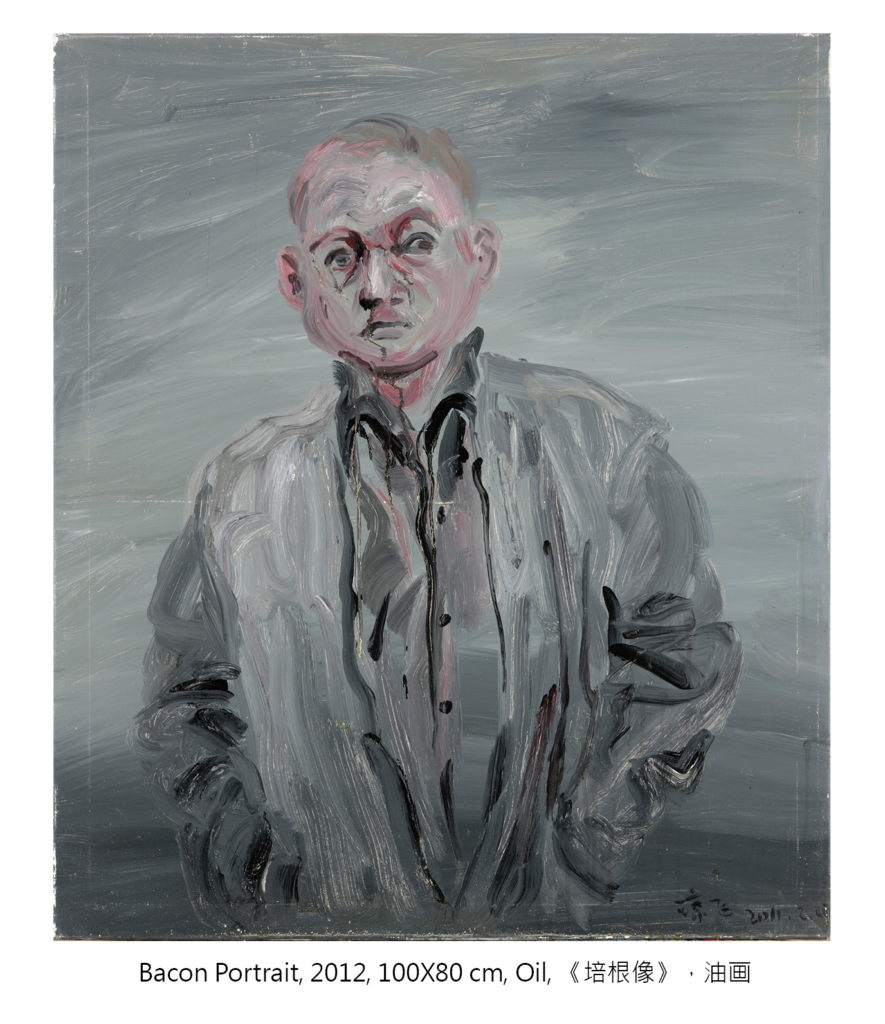
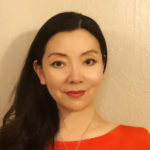


Be the first to comment